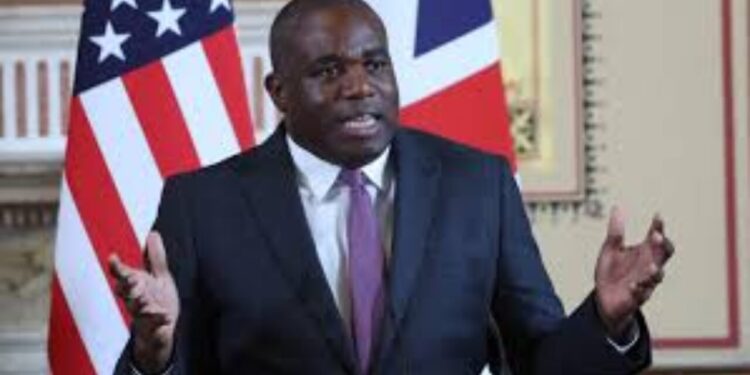The United Kingdom has suspended all Iran flights as part of a broader initiative by Western allies to increase pressure on Tehran. This action comes in response to Iran’s alleged supply of ballistic missiles to Russia for use in the ongoing conflict in Ukraine. The decision to halt Iran flights marks a new chapter in the complex geopolitical landscape surrounding the Ukraine war, with far-reaching implications for international relations and regional stability.
Coordinated Sanctions Target Iran’s Military Support
The United States, United Kingdom, France, and Germany have jointly implemented a new round of sanctions against Iran. These measures are specifically designed to counter Tehran’s military support for Russia in the Ukraine conflict. The sanctions package includes several key components:
– Restrictions on Iran Air: The national carrier of Iran now faces limitations on its ability to operate flights to the UK and Europe. This move not only impacts Iran’s aviation sector but also serves as a symbolic gesture of the allies’ determination to isolate Iran economically.
– Individual Sanctions: Travel bans and asset freezes have been imposed on several Iranian individuals accused of playing crucial roles in facilitating military support for Russia. These targeted sanctions aim to disrupt the personal and financial networks of those deemed responsible for Iran’s military cooperation with Moscow.
– Sanctions on Russian Ships: Five Russian cargo vessels have been sanctioned for their involvement in transporting military supplies from Iran to Russia. This action highlights the allies’ commitment to disrupting the logistics chain that enables the transfer of weapons and technology between Iran and Russia.
Iran Flights Suspended: A Strategic Move in the Sanctions
The decision to halt Iran flights represents a strategic element in the West’s sanctions playbook. By targeting Iran’s aviation sector, the allies aim to:
– Disrupt Economic Ties: Limiting Iran Air’s operations to Europe could significantly impact Iran’s trade and business relations with European countries.
– Send a Strong Message: The flight restrictions serve as a clear signal of the West’s disapproval of Iran’s actions and its willingness to take concrete steps in response.
– Pressure Iranian Leadership: By affecting both the country’s economy and its citizens’ ability to travel, the sanctions may increase domestic pressure on the Iranian government to reconsider its policies.
Escalating Tensions and Potential Consequences
The imposition of these new sanctions, including the suspension of Iran flights, has led to an escalation of tensions between Iran and the Western allies. This development has several potential consequences:
– Diplomatic Strain: The relationship between Iran and Western nations, already fraught with challenges, may deteriorate further, potentially impacting ongoing diplomatic initiatives such as nuclear talks.
– Regional Instability: The sanctions could lead to increased instability in the Middle East, as Iran may seek to retaliate or strengthen its ties with other anti-Western powers.
– Impact on Ukrainian Conflict: If successful in limiting Iran’s ability to supply weapons to Russia, these sanctions could potentially influence the course of the war in Ukraine.
The allies have justified their actions by citing intelligence reports that indicate a significant escalation in Iran’s military support for Russia. US Secretary of State Antony Blinken revealed that Russian personnel have received training from Iranian forces on the use of short-range ballistic missile systems, specifically the Fath-360. This missile system, with a range of up to 75 miles (120 km), could potentially be deployed against Ukrainian targets within weeks.
The UK Foreign Secretary, David Lammy, described this development as “a significant and dangerous escalation” in the conflict. The Western allies argue that Iran’s supply of missiles to Russia poses a direct threat to European security, a claim that Iran vehemently denies.
In response to these allegations and the subsequent sanctions, Iran has dismissed the Western statements as “false and misleading.” This stance highlights the deep divide between Iran and the Western powers, with each side presenting conflicting narratives of the situation.
The sanctions come at a critical time in the Ukrainian conflict, as Russian forces continue to make advances in eastern Ukraine. The key settlement of Pokrovsk, an essential transport hub, is reportedly under threat from advancing Russian troops. This context underscores the urgency felt by Western allies in addressing Iran’s alleged support for Russia.
Ukrainian President Volodymyr Zelensky has expressed frustration with the pace of weapons deliveries from Western allies. He has also requested authorization to use Western-supplied missiles to strike targets deep inside Russian territory, a move that the United States has so far resisted due to concerns about further escalation.
In a show of solidarity with Ukraine, Blinken and Lammy announced a joint trip to the country. This visit, the first of its kind in years, is seen as a reaffirmation of the close partnership between the United States and the United Kingdom, often referred to as the “special relationship.” The diplomats stated that one of their primary objectives is to hear directly from Ukrainian leadership about their goals and support needs.
The decision to halt Iran flights and impose new sanctions represents a significant escalation in the West’s response to Iran’s alleged support for Russia in the Ukraine conflict. As tensions rise and the situation continues to evolve, the international community watches closely to see how these measures will impact the complex dynamics of the ongoing war and broader geopolitical relationships. The suspension of Iran flights serves as a tangible symbol of the West’s determination to pressure Tehran, even as questions remain about the long-term effectiveness and consequences of these actions.
















